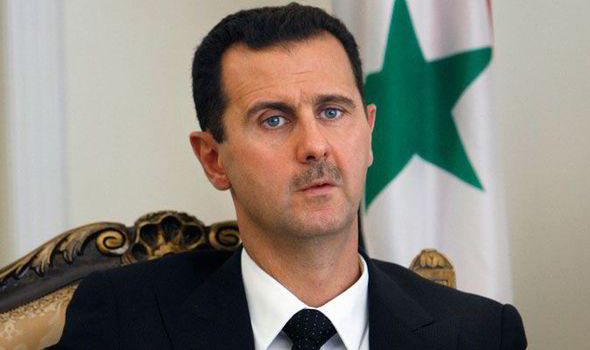Last year, WorldNetDaily editor Joseph Farah displayed his ignorance about the Syrian civil war by falsely declaring that “There are two warring parties in Syria – the Syrian government, which is attempting to repulse an invasion and partial occupation of Syrian territory, and ISIS, a terrorist plague on the entire world, not just Assad’s regime.” In fact, there are multiple warring parties, and the Syrian government under Bashar al-Assad actually built up ISIS in the country in an attempt to discredit the political uprising against his regime.
Well, Farah is still having problems figuring out the whole Syria thing. In his April 9 column, he did concede that gas attack was likely perpetrated by the Assad regime, lamenting that “It appears Syria’s war on ISIS has become a war on its own people – a war not only on Sunni Muslims but Kurds.” He’s more interested, though, in alleged Turkish attacks on Kurds in the northern part of the country.
Farah followed up on April 16 by casting doubt on the effectiveness of President Trump’s retaliatory bombing of Syria for the gas attack, and he finally admits he doesn’t really know what’s going on:
What is the real problem in Syria? What continues to drive people into refugee status? How can the killing fields and ethnic cleansing be stopped?
I’m not sure I know the answer. But Russia, Iran and Turkey – a new axis of evil – are firmly entrenched in Syria. Bashar Assad, the titular leader of Syria, is merely a pawn of all three.
If the U.S. does not have a plan for Syria, Russia, Iran and Turkey surely do.
[…]Does America have any friends in the Middle East?
Yes, it does. And we need to help them defend themselves to the greatest extent possible.
I believe those friends include Israel, the Kurds, the Christians and other ethnic and religious minorities that are all caught in the crossfire of this conflict. We should never forget them.
No one, including the axis-of-evil coalition, wants to see this conflict spiral out of control, certainly not at this moment.
Neither of Farah’s columns mention the fact that there is an anti-Assad opposition in Syria, to whom the U.S. has provided some support. Infighting among the various rebel factions, however, is diminishing their effectiveness, as well as the military support the Assad regime has received from Russia and Iran.
Again: Farah portrays himself as an expert on international affairs and issues an “intelligence resource,” the G2 Bulletin, for which he charges a whopping $99 a year. His portrayal of the situation in Syria still doesn’t reflect reality, so what good is he?
